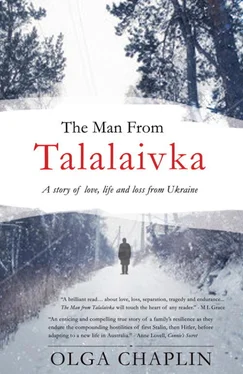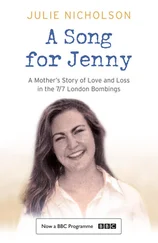“Dyna,” Peter touched Evdokia’s arm gently, distracting her from her mending. He smiled confidently. “I’m going to the marketplace… I’ll look for cabbage, and beetroot… whatever there is, for the borshch… and citrus for the little ones.” Their eyes exchanged gratitude: he for her forbearance under all circumstances, she for his energy and optimism with each new day.
“You might yet see Kola in one of the nearby squares,” she ventured. “He and his friends play football with the local boys.” He nodded. He was glad that Mykola and his friends occupied their time in harmless ways. Naples was a mecca for gaiety, but also for renewed underworld activities, as local groups competed for control of parts of the city.
He walked the familiar route to the market place, carefully negotiating steep laneways and ancient uneven stone steps. Everywhere along this unpretentious back route there were visible signs of war not long over: the buildings scarred or partly demolished, makeshift shutters hiding glass-shattered windows, and evidence of shrapnel everywhere. Yet the verve of the city dwellers excited him, helped him look past the carnage, to optimism in the future.
By now, his daily walk to the market place had become almost automatic. He crossed from sunlit streets to shadowed lanes, to sunlit streets again, his eyes adjusting to light and dark, and light again. He was almost at the market place. As he stepped out of a shadowed laneway into a bright street, something—someone—caught his attention. He stopped to check his step, then blinked, gasped. It was Vanya! His Vanya! He was too far ahead for Peter to clearly see his face, close enough to observe his walk, his dark hair, even the way he kept one hand in his pocket as he strode swinging the other. Peter followed him, each of them walking quickly, Peter unable to run as he controlled his urge to shout, his eyes glued to Vanya’s back, stepping the cobblestoned streets and laneways, finally half-running, about to call him. At last, the young man stopped and turned slowly as he became aware someone was following him. Peter felt a sickening blow to the heart as he realised the young man was indeed, like Vanya, but he was younger. Slightly shorter than his own firstborn, perhaps even slightly stockier—he could not be certain, any longer—this youth, so like Vanya in many respects, was a Neapolitan, and barely fifteen. The young Italian turned slowly away, and disappeared into an alley.
Peter leaned back against a dilapidated stone wall, his heart beating wildly, still panging. He was momentarily lost, unaware of his surroundings. He realised he had followed this youth for some minutes. Disoriented, upset at his own depth of longing, he bent his head, unable to weep, the pain biting at him.
As he drew breath, he looked across the narrow laneway to a darkened doorway, from where choir song could be heard. Instinctively, he was drawn to it. He slowly made his way along the dimly-lit aisle, to a pew at a small distance from the altar. As he sat, shoulders hunched, a nun walked softly towards the choir, paused as she passed him, her face of kindness gracing her ebony habit, a garb now worn with dignity and pride, not the humility of shame at Mussolini’s doings. She smiled her understanding and continued to the altar, nodding to the choir boys to continue practising:
“Ave Maria, gratia plena
Dominus tecum, benedicta tu…”
Peter felt himself become immersed in the beauty of the music, and purity of the children’s voices. He had never encountered such gentleness, yet such strength of spiritual feeling, as he experienced in this prayerful song. He bent his head, silently praying in song with it: tears of pain, and sorrow, and anguish, all washed in human caring and understanding, whatever the circumstances, wherever the location. He wept for Vanya, for his beloved Hanya and baby Mischa, and little Manya, for all those souls gone and missing, whether it was for Stalinist totalitarianism or Hitler’s imperialistic gains. In each circumstance, in each of the countries where he was forced to work and travel, good souls could be found that outweighed the evil; good souls could be found wherever one was sent, in this ever-widening arc of the globe.
“God, give us good enough health, take us wherever You want… let us live a life of freedom from the oppression of the past. For my family’s sake… for my children’s sake…”
At last, he realised the choir was finished. The nun silently receded. He was alone in the dimmed cavernous light of the church. He stood up slowly, held firmly to the pew before him. He had cried the last time for his homeland, his lost loves on European soil. He would accept whatever ship came next, to take his family to safety. He had to think of them, above all, even if it meant being taken to the far end of the globe, even further still from so many of his friends now journeying to America. He had made his pledge to his Maker, had reconciled his heart. The universal music, passed on to him so freely and unexpectedly through children’s voices, reminded him of the value of love, through unselfish giving, even at a cost to himself. He had paid dearly before this: perhaps the bill for the remainder would be lighter yet.

Chapter 39
“Oi, Petro, hurry on, or else they’ll leave you behind!” a welcoming shout alerted Peter’s attention. He laughed and waved to familiar faces among passengers already positioned on the deck. Handing his family’s embarkation papers with their newly standardised surname to the officer, he nodded respectfully to the posse of police displaying IRO armbands. He looked about him, murmured to Evdokia and the children to stay close. As haphazard as the procedures were, the security prior to boarding was over-burdened as each individual was checked and double-checked by IRO officials from different persuasions. He realised Italy’s recent inclusion in western Europe now meant that Cold War diplomacy required greater controls. His eyes scanned the massive steel wall of the Castelbianco and sighed in relief that generous IRO sponsorship had released ships such as these for long voyages.
At last they were moved forward to the boarding plank, then were directed to male and female dormitories. Evdokia clung to the single valise, their only accessible luggage for the month-long sojourn. She remained mute as he reassured her there was little they needed on this equatorial voyage, that ship-deck living would improve their health. He laughed at his daughters’ excitement, nodding approval for them to follow Mykola to an enclosed deck. Evdokia waved Peter on, settling herself in her allocated bunk to converse with the other women, all strangers, all displaced persons from disparate camps in western Europe.
Peter found the higher deck, and gazed at the scene before him. Below him at quayside, officials, exasperated the docking time had passed, were shouting orders to the crew. Last orders were chaotically directed, the boarding plank removed as the ship’s horn blasted above all the other commotion. He felt the first lurch of freed ship as the mooring lines came away, a soft cheer from the crowd on deck acknowledging they were at last departing.
He could now look beyond the embarkation point, to the whole bay of Naples. Though it was late-January and the breeze was crisp, there was a gaiety, a casualness to the life of this busy vibrant city. Their stay had been prolonged, but not unhappy, and little Ola had finally thrived in the relative warmth of the Mediterranean climate. He sighed in relief, assured at last that their Naples stay had not been in vain: it had formed his decision to take this available ship to Australia, rather than risk Ola’s health. He had conceded that Australia, and especially Sydney, which he had nominated, was not unlike this Neapolitan city with its inviting climate. He was glad, now, that he had perused again, more carefully, the brochure earlier given him by an IRO official.
Читать дальше













